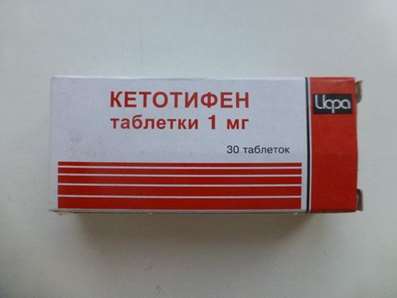FAQ: Post Neolithic food
12 Dec 2016
5 facts about the formation of the culture of food and its impact on human development

Food and meal occupy a special place in the culture of almost all ages and nations. We can not explain it only physiological needs. Myths are full of stories about the appearance of proper human food and that man is man, it is partaking to a certain type of food. Below - a few stories associated with the time when the tradition was formed human nutrition.
- 1.Everyone knows the term "Neolithic revolution", although now it is not as popular as, say, 50 years ago - modern ideas about why people suddenly began to abandon the traditional way of life-gatherer-fisher hunter, quite different from the original Gordon Childe concept , the author of the term and the very concept of the Neolithic revolution. He believed that it was the economic base, but we understand that they could not become a source neolitization processes: the first stages of development of agriculture, livestock require enormous effort, while giving an unstable result. Paleoanthropological evidence indicates that Early Neolithic community that is already gone over to agriculture and livestock, had much lower rates of life expectancy, health status, etc., than their contemporaries, preserved traditional way of hunter-gatherers. So the logic in the assumption that there is no economic grounds.
Perhaps we are dealing with a complex set of religious ideas and aspirations of the person to whom then joined rationality. Nevertheless man surrounds himself with a new world: home, homes, house plants and animals - that is, forms the built environment. Thus, if talk about the Neolithic revolution, it was a creation of the built environment, and not just jump to a particular type of food. - 2.We have a well-established term "early farmers." It was assumed that they are bred mainly cereals - wheat and barley - and ate them. But, as shown by studies of the isotopic composition of bone tissue, it is not so. Early landowners, that is, specializing in agriculture, there was: livestock and agriculture develop comprehensively. Of course, the crops have become an integral part of the human diet, but only part of it, because the harvest is not guaranteed, and at that time was short. However, the interpretation of surprising properties of grain yield in the tens or hundreds of times more yield than was sown, that is to revive dying lies at the basis of many cults, leaving the roots in the deep antiquity of preliterate.
- 3.The transition to a new food is associated with physiological rearrangements. Genetics modern populations allows us to see those microevolution processes that led to the consolidation and increase in the frequency of recurrence of certain lines, - processes that bring benefits. In this respect, it is best studied in the process of adjusting to the dairy food - the first man among the animals began to consume milk, infant food, throughout life. In fact, it is the food of infants and young children; man to successfully digest milk, it should keep the baby enzymes. Therefore, we can assume a certain direction of microevolution process in those populations where adults frequent this enzyme - in the north and north-west of Europe, in the Baltic region.
- This does not mean that in other areas milk was not included in the diet, but here it was probably vital. After all, the northern areas - it is not enough ultraviolet radiation as a result - rickets, a terrible disease: changes in the skeleton of a woman after suffering rickets in childhood is likely to lead to the fact that the offspring will be born with complications, or not at all. So that the population is protected from rickets, will be much more successful in microevolutionary respect (that is selectively important trait can be judged from the experience of European settlement on the territory of Greenland). The gene that allows a person to produce lactase into adulthood, confirms the importance of selective type of food for the north-western nations of antiquity. And he definitely originated in Europe, possibly in the Paleolithic period - 10-12 thousand years ago - or so later, here opinions diverge geneticists. To imrpove brain and cognitive function – buy Cogitum, Piracetam, Cyanocobalamin injection, Semax and Phenotropil.
- 4.Adapting to human food have different effects on the genetics and physiology. There are diseases associated with intolerance to certain grain proteins - such as celiac disease, known to the ancient Greeks; it was described in classical times, although the etiology was not completely clear. So far, not exactly determined which genes cause the intolerance. But it is clear that the complex of traits that determine the possibility of acceptance or rejection of gluten could not be selective significance because the grain - the basis, if not the Neolithic, the Late Neolithic "food package". Also, there may be some inheritance linked genes: for example, a very interesting feature as favism - a disease that does not allow a person to perceive the beans, even their pollen, but it protects against malaria, which is important for the southern regions. Here we are dealing with genetic and physiological characteristics of the complex.
- 5.Formation of a new type of power generates and economic features of them. In the era of early civilizations and later appeared societies that specialize in agriculture, food consumed, in fact, almost vegetarian. But initially man - carnivore, omnivore. The larger plants, especially cereals, it uses, the more he needs substance which it obtains in this diet. For example, it needs salt - sodium chloride it spends to maintain homeostasis and blood, and digestion. And then - problem: where the seed brings a good harvest, will never be the salt; where there is salt, there will be a high yield. In this - the cause of the formation of the universal trade relations of the time: where are sowing, no salt. These trade relations determine the specialization: the owners of salt lakes or salt deposits are in pole position. Thus, the new warehouse supply forms and settlement structure, the structure of economic relations. This happens automatically, not intentionally - and this principle is important for the whole theme.

 Cart
Cart





